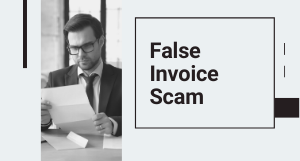fraud
fraud
Fraud Alerts
Links to external and internal sources explaining how fraud can impact our University. Articles include examples of fraud committed as well as Anti-Fraud controls to help identify and defend against potential risks.

New Hacker Tactic
A new tactic being used by hackers aims to gain access to your account by wearing you down with repeated two-factor authentication sign-in approval requests. The hackers hope you’ll get frustrated enough by the barrage of notifications to eventually approve access to your account.

Password Scams
Information Resources & Technology has seen a recent spike in password scams targeting Rowan University employees, so take extra precaution when you receive an email asking for your login credentials.
Scammers use many different techniques to trick you into turning over your username and password, but a recent scam claimed faculty and staff had to confirm their email and password as part of a password policy update.
We will never ask you to provide your password via email, and the only website you should ever use to make changes to your password or update your Duo two-factor authentication devices is netid.rowan.edu.
Use our tips for spotting phishing scams and malicious websites for help identifying potential threats. You can also check our list of known scams if you receive an email you think is suspicious.
If you have any questions, please contact the Technology Support Center at 856-256-4400, or submit a ticket in the Rowan Support Portal.
Contact Information:
Technology Support Center
856-256-4400
support@rowan.edu
support.rowan.edu

It's scam season
Tax season is scam season, so please be extra vigilant in the coming weeks when you receive an email that directs you to log in to a website with your Rowan credentials to access or update financial and other personal information.

False Invoice Scam
Businesses are popular targets for invoice fraud. In these scams, criminals send bills for goods or services the business never ordered or received. The scam succeeds mainly because the invoices look legitimate and unsuspecting employees don’t look closely to see it’s not real.

Phony retirement consultation emails
Message on behalf of Human Resources and Information Resources & Technology:
Some employees have recently been contacted by private organizations claiming to represent the State of New Jersey and/or Rowan University and offering personal consultations on pension and retirement benefits.
These organizations are, at best, trying to engage employees in financial advising, and, at worst, attempting identity theft or fraud.
If you receive an email from an organization you aren’t familiar with regarding your pension or retirement benefits, please check our list of recent scams to see if it’s a scam we’ve already identified. If you don’t see the scam and would like to validate or report the scam, forward the message to support@rowan.edu and then delete it. For more information about spotting a scam, visit our page on How to Spot a Scam.
Employees enrolled in the Public Employees Retirement System (PERS) or the Police and Fire Retirement System (PFRS) should not be contacted by any outside organization regarding pension and retirement benefits. Employees who are enrolled in the Alternate Benefit Program and selected from one of seven state-approved vendors to invest retirement contributions may be contacted by that vendor via Rowan University email, but generally only in response to an inquiry sent by the employee.
Pension counseling that is offered through the University will be directly communicated to you by Human Resources, not by an individual pension vendor, unless you have signed up to attend an event through an approved Human Resources email.
For any additional questions about pension and retirement benefits, please contact Caren Sheppard, Director of Pensions & Benefits, at 856-256-4136.

It's scam season
Here's what you should look out for
Tax season is scam season, so please be extra vigilant in the coming weeks when you receive an email that directs you to log in to a website with your Rowan credentials to access or update financial and other personal information.

W-2 Scam Alert
W-2 Scam Alert
Message on behalf of Joseph Scully, Senior Vice President and CFO, and Mira Lalovic-Hand, Senior Vice President and CIO:
As tax season approaches, we would like to warn Rowan University employees of scams aiming to trick people into giving personal information to cybercriminals who want to profit from stolen data. One scam that circulated in previous years targeted tax records through emails that notified employees their W-2 forms were ready to view online and provided a direct link to view the form.

Phishing Emails
How to Spot Phishing Emails
Message from Leonard Nelson, Director of Information Security at Rowan University:
Several recent phishing attempts targeting Rowan University successfully convinced students, faculty and staff to enter their usernames and passwords into malicious websites.

Report to the Nations
ACFE - Report to the Nations
2018 Global Study on Occupational Fraud and Abuse
Learn how fraud is committed and the most effective ways to detect it. Identify fraud losses at global, industry and organizational levels. Discover how organizations respond when occupational fraud has been identified.

Cyber Crime
Purchase Order Scam Leaves a Trail of Victims
What began as a scheme to defraud office supply stores has evolved into more ambitious crimes that have cost retailers around the country millions of dollars.
